 JOMP: Memorial Day is generally considered the unofficial start of summer. It is a season of fun and leisure but can also be a time when pets are forgotten or injured, amidst the fun, games, activates and heat. Our pets our family members and all animals under our car are our responsibility so this is a quick reminder that pet (animal) health should be kept in the forefront of our minds to help ensure a safe season for all.
JOMP: Memorial Day is generally considered the unofficial start of summer. It is a season of fun and leisure but can also be a time when pets are forgotten or injured, amidst the fun, games, activates and heat. Our pets our family members and all animals under our car are our responsibility so this is a quick reminder that pet (animal) health should be kept in the forefront of our minds to help ensure a safe season for all.
Memorial Day is often filled with travel, parties, parades that often include pets and fun under the sun, so while it is fun to include our pets in our activates, we can't forget to take the extra steps to make sure they' are safe and protected.
Below are the top five top safety tips from the ASPCA that pet owners need to remember this summer:
- Travel in Style: Traveling can be highly stressful for our pets. If you're planning a road trip, prep your pet in advance by taking short rides in the car and getting them used to riding in a crate or car harness. "Pet owners should never leave their animals unattended in a parked vehicle," said Dr. Louise Murray, vice president of the ASPCA Animal Hospital. "Parked cars, even with windows open, become very hot in a short amount of time, and this can lead to heatstroke or death." If you must travel by air, putting your pet in cargo isn't ideal. If this is unavoidable, take great care to purchase the required crate and tell every airline employee you are traveling with a pet in cargo to avoid your pet being left on the tarmac or outside during extreme weather.
- Keep Cool: Dogs and cats can become dehydrated quickly, so give them plenty of water when is the weather is hot.. Also, make sure your pet has a shady place to escape the sun and don't let your dog linger outdoors, especially on hot asphalt. Being so close to the ground, your dog's body can heat up quickly, and sensitive paw pads can get burned.
- Watch What They Eat: Summertime can be perfect for backyard barbecues or parties, but remember that the food and drink you serve your guests may be poisonous to pets. Keep alcoholic beverages away from pets, and remember that the snacks you serve your friends should not be treats for your pet. Any change of diet - even for one meal - may give your dog or cat severe digestive ailments. Make sure to avoid raisins, grapes, onions, chocolate and products with the sweetener xylitol, since these are poisonous to pets, the no-no foods for pets.
- Beware of "High-Rise Syndrome": During warmer months, many animal hospitals and veterinarians see an increase in injured animals as a result of "High-Rise Syndrome," which is when pets fall or jump out of windows and are seriously or fatally injured. Keep all unscreened windows in your home closed and make sure screens are tightly secured.
- Love the Leash: Warm weather can inspire longer walks, but while this is exciting for both dog and owner, it's important that dogs are always kept on leashes with collars and up-to-date ID tags to protect them from getting loose and injuring themselves or others.
Also, be sure to carry the numbers for your dog(s), cat(s) and other pets’ local veterinarian, the 24-Hour emergency pet clinic and the ASPCA's Animal Poison Control Center at (888) 426-4435 for immediate assistance if needed.
Below are some fun Memorial Day pet fun photos from 2013:
Fun Patriotic Memorial Day Pet Photos
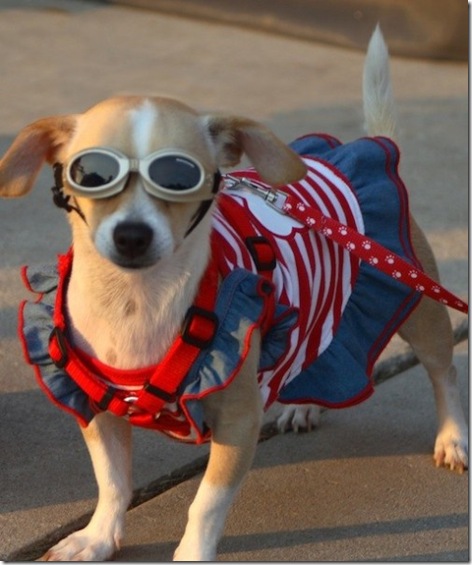


By Marion Algier – Just One More Pet (JOMP) – UCLA Shutterbug
Ronald Reagan Honors America and Our Troops Past and Present
Photos From the Frontlines – The Dogs of War
Memorial Day Weekend Health Safety Tip Reminders
Nation's oldest Memorial Day Parade returns to Bay Ridge
Military Heroes and Their Dogs
1st national monument for war dogs honors four-legged pup soldiers of World War II and beyond
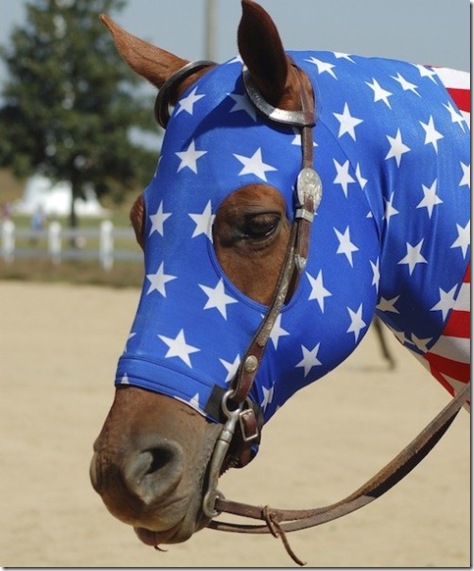

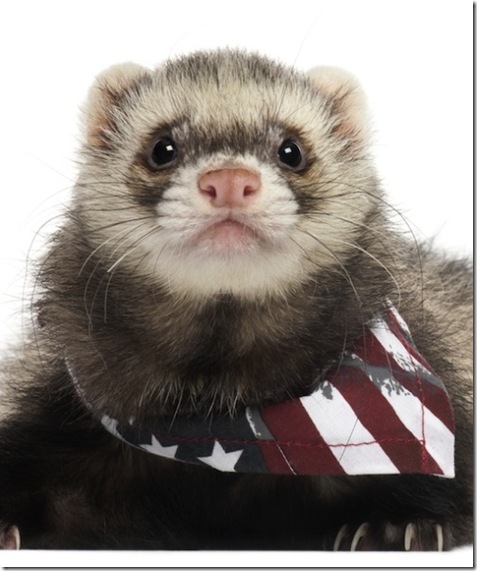

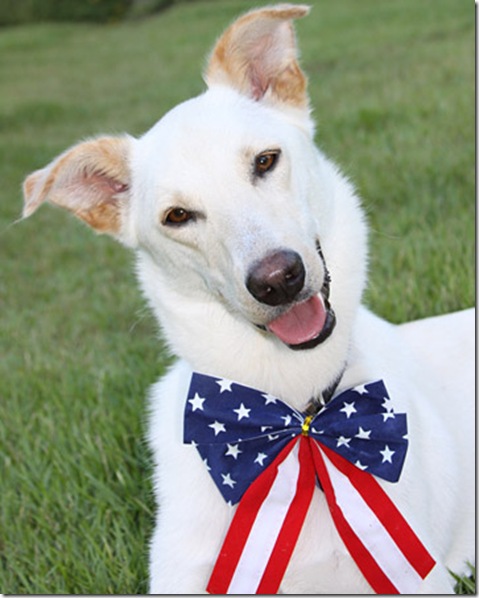

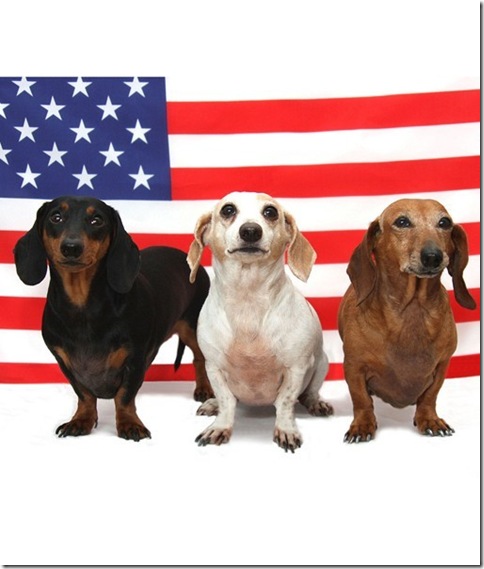
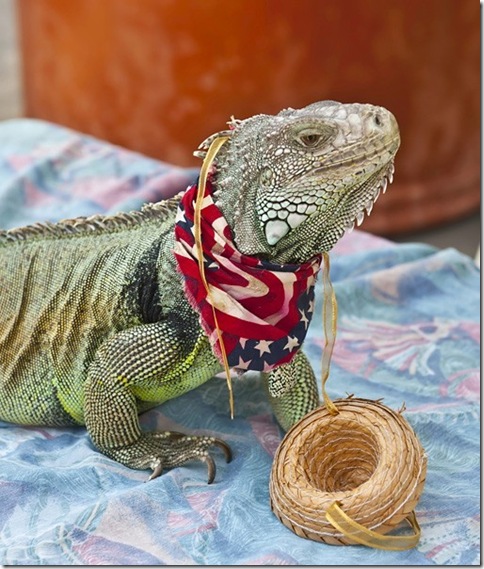
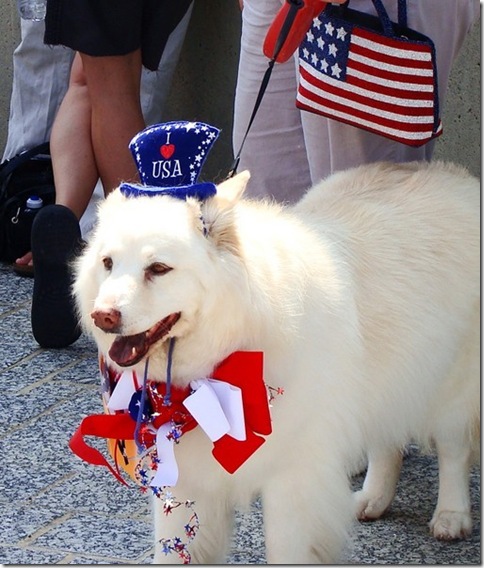
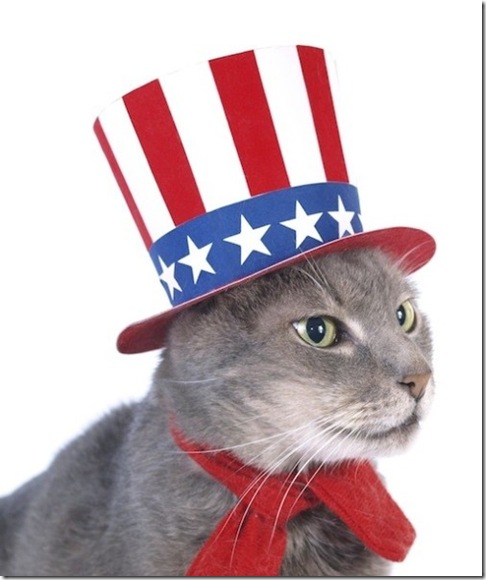
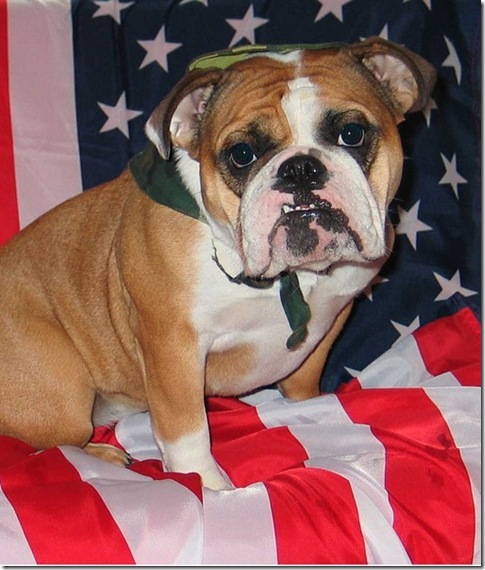
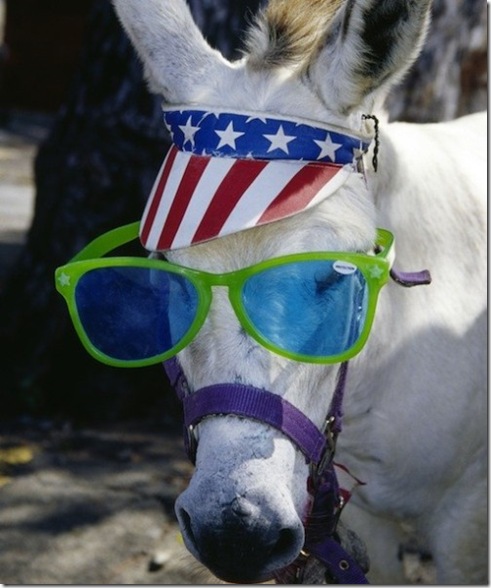
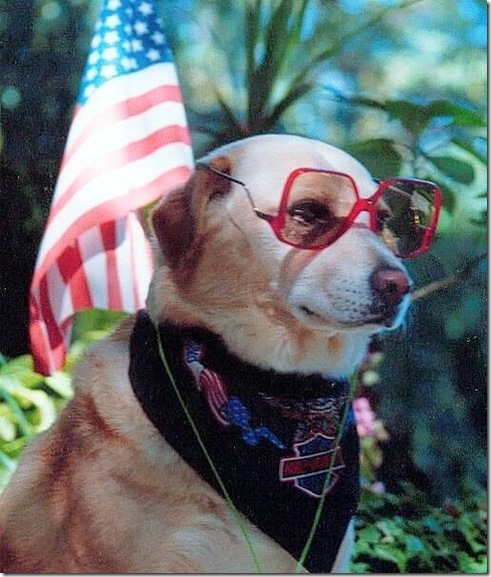
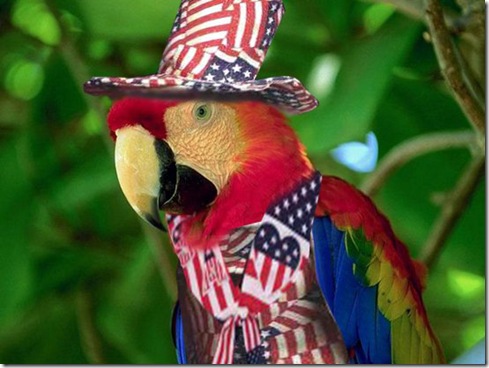
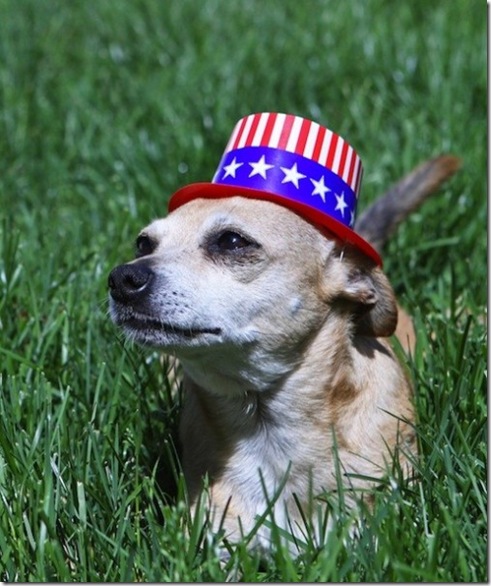
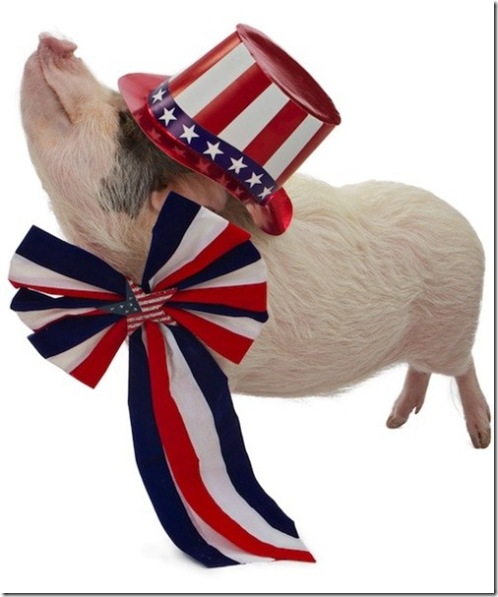
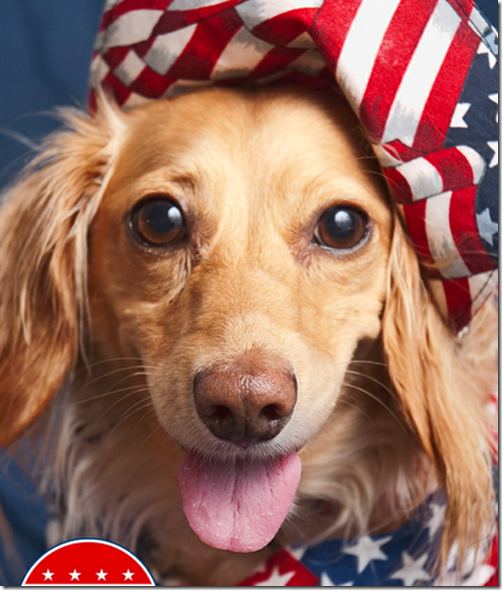
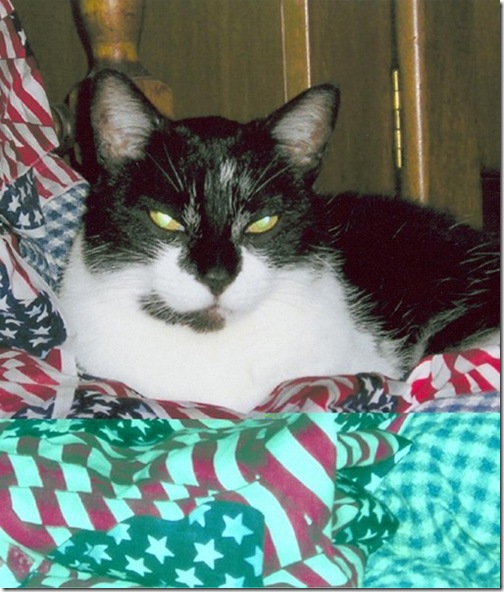

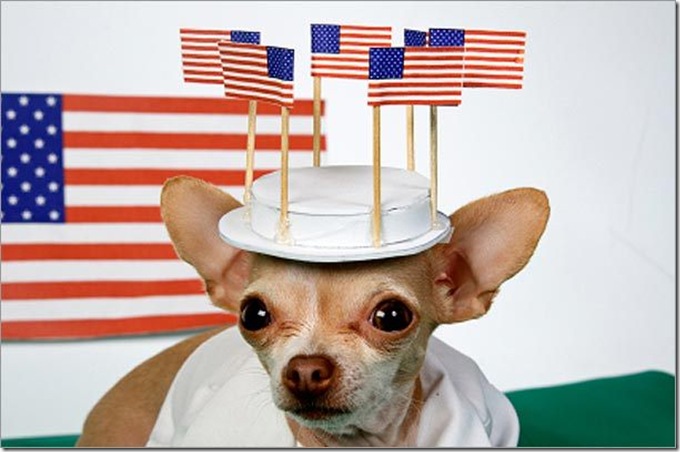
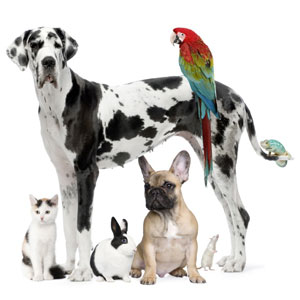 The “Not So Safe” or No-No Pet Food List
The “Not So Safe” or No-No Pet Food List